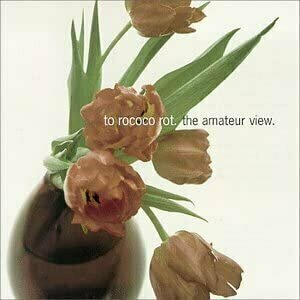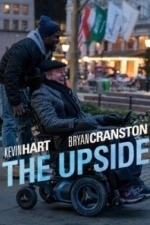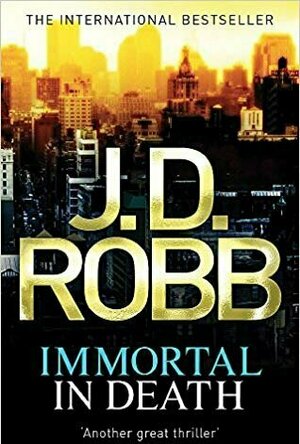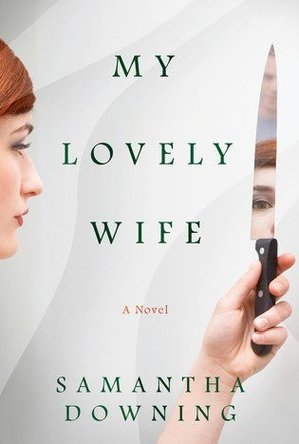Search
Search results
Emma @ The Movies (1786 KP) rated Don't Let Go (2019) in Movies
Nov 4, 2019
Don't Let Go nearly passed me by, last minute advertising popped it back onto my radar and I was still suitably intrigued by it and managed to catch it at my local. The idea seemed like an interesting one, it worked for Frequency so why not now too? After seeing the film though you realise that if you take the sci-fi out you could easily adapt the story into a regular thriller. I thought they handled the "time travel" between cuts in a very good way, but ultimately the lack of explanation felt like a letdown and the ending felt rather unfulfilling too.
They do some of my least favourite camera work, bouncy cameras and the opening gliding shot didn't sit well with me. Just once I'd like to see a camera in a car that only jumps when they hit a pothole or take a speed bump.
The majority of the film is following Jack, played by David Oyelowo, he does a good job of the mania that you'd expect from this situation. There's always the issue with situations that are more real than science fiction... how can you even begin to work out what you'd do? It felt believable and that was a fairly impressive feat.
I'd previously seen Storm Reid in A Wrinkle In Time which I loved, but in neither film did I find her easy to watch. She's got a talent for sure but sometimes things don't seem all that natural on screen.
As I said, the idea is intriguing, I'm hopeful that appeal will be enough for some people to find this film entertaining. I enjoyed it for the most part but the disappointing ending and too many points left to "it's a mystery" mean I won't be putting this very high on the list of things to rewatch.
Full review originally posted on: https://emmaatthemovies.blogspot.com/2019/11/dont-let-go-movie-review.html
They do some of my least favourite camera work, bouncy cameras and the opening gliding shot didn't sit well with me. Just once I'd like to see a camera in a car that only jumps when they hit a pothole or take a speed bump.
The majority of the film is following Jack, played by David Oyelowo, he does a good job of the mania that you'd expect from this situation. There's always the issue with situations that are more real than science fiction... how can you even begin to work out what you'd do? It felt believable and that was a fairly impressive feat.
I'd previously seen Storm Reid in A Wrinkle In Time which I loved, but in neither film did I find her easy to watch. She's got a talent for sure but sometimes things don't seem all that natural on screen.
As I said, the idea is intriguing, I'm hopeful that appeal will be enough for some people to find this film entertaining. I enjoyed it for the most part but the disappointing ending and too many points left to "it's a mystery" mean I won't be putting this very high on the list of things to rewatch.
Full review originally posted on: https://emmaatthemovies.blogspot.com/2019/11/dont-let-go-movie-review.html
Jesters_folly (230 KP) rated Fast & Furious Presents: Hobbs & Shaw (2019) in Movies
Aug 6, 2019
Contains spoilers, click to show
I would like to start by saying that I have, at the time of writing this, never seen any of the previous ‘The Fast and The Furious’ films and my knowledge of the franchise is; Film 1 - some people steel some cars, Film 2 – more cars get stolen, Film 3 racing in Japan, then apparently they get weird so I wasn’t total sure what I was getting into but hay any film that has an evil cyborg going up against two action hero’s has to be good. Doesn’t it?
Of course it does. I’m not going to pretend that ‘Hobbs & Shaw’ is a massive cinematic masterpiece but you it knows what it is, a ‘no brainier’ action film that doesn’t take itself too seriously. The plot is, of course simple and ridiculous, to stop the technological enhanced Brixton from getting a virus that can wipe out most of the people on earth Hattie injects it into herself. Hobbs & Shaw are hired to get Hattie and the virus back. Hobbs and Shaw don’t like each other having met before in one of the previous films and Dwayne Johnson and Jason Statham play this brilliantly, bouncing insults off each other though out most of the film.
The film does have a slight serious theme as the subject of family is tackled but this only helps the flow of the film.
The only side effect of not seeing any of the other films was that I was unsure if Brixton had been in any of them before, there was a backstory between him and Shaw but I couldn’t tell if it did refer to something seen before or if it was just for this film. There was also a second bad guy who mentioned that Hobbs didn’t remember him but it was never reviled who this was and as neither of these points impact on the film they do not take away any of the enjoyment.
So If you like easy going action films with car chases and explosions this film is for you.
Of course it does. I’m not going to pretend that ‘Hobbs & Shaw’ is a massive cinematic masterpiece but you it knows what it is, a ‘no brainier’ action film that doesn’t take itself too seriously. The plot is, of course simple and ridiculous, to stop the technological enhanced Brixton from getting a virus that can wipe out most of the people on earth Hattie injects it into herself. Hobbs & Shaw are hired to get Hattie and the virus back. Hobbs and Shaw don’t like each other having met before in one of the previous films and Dwayne Johnson and Jason Statham play this brilliantly, bouncing insults off each other though out most of the film.
The film does have a slight serious theme as the subject of family is tackled but this only helps the flow of the film.
The only side effect of not seeing any of the other films was that I was unsure if Brixton had been in any of them before, there was a backstory between him and Shaw but I couldn’t tell if it did refer to something seen before or if it was just for this film. There was also a second bad guy who mentioned that Hobbs didn’t remember him but it was never reviled who this was and as neither of these points impact on the film they do not take away any of the enjoyment.
So If you like easy going action films with car chases and explosions this film is for you.
Colin Newman recommended The Amateur View by To Rococo Rot in Music (curated)
Rick Astley recommended Under the Pink by Tori Amos in Music (curated)
Daniel Boyd (1066 KP) rated The Upside (2019) in Movies
May 8, 2019 (Updated May 8, 2019)
On The Up and Up
This movie had a bit of a strange release, at least in my area. It was one of those movies that only had two showings a day on it's opening weekend and they were both at really obscure times like 10:30am and 2:40pm, - times that would suggest that this movie was being put out to die. This was disappointing as, after seeing the trailers, I was looking forward to seeing it and never got the chance while it was in cinemas. Anyway, I finally got around to seeing it upon it's home release and I really enjoyed it.
Although I did like the look of this project from the trailer and I am a big fan of Bryan Cranston, I was wary of Kevin Hart starring opposite him in this role. It looked like a role that would require a more serious actor than Kevin Hart and I was concerned that Hart had been miscast and only chosen because of the recognition of his name rather than whether or not he was the right actor for the part.
Surprisingly and thankfully, I was proven entirely wrong. Hart shows here that he is in fact very capable in a more serious role such as this and doesn't just have to resort to screaming in every film he is in. I hope that he takes on more serious stuff following this as I much prefer it to any of his 'comedic,' roles. The rest of the cast are also great, Cranston gives a sublime performance as he always does and Nicole Kidman works well as Cranston's character's secretary/ potential love interest.
This film is a remake of a French film called The Intouchables and there are other elements of it that bear similarities to other movies that we have seen before, but it is a well told story that has various worthwhile messages littered throughout it. The script is witty and snappy enough that the film never feels slow or boring.
Overall, I really enjoyed my time with this one. It isn't the most original thing I have ever seen, but it was entertaining and it had heart. The script was well written and the direction was solid. The performances from the entire cast also help elevate the already funny script even further.
Although I did like the look of this project from the trailer and I am a big fan of Bryan Cranston, I was wary of Kevin Hart starring opposite him in this role. It looked like a role that would require a more serious actor than Kevin Hart and I was concerned that Hart had been miscast and only chosen because of the recognition of his name rather than whether or not he was the right actor for the part.
Surprisingly and thankfully, I was proven entirely wrong. Hart shows here that he is in fact very capable in a more serious role such as this and doesn't just have to resort to screaming in every film he is in. I hope that he takes on more serious stuff following this as I much prefer it to any of his 'comedic,' roles. The rest of the cast are also great, Cranston gives a sublime performance as he always does and Nicole Kidman works well as Cranston's character's secretary/ potential love interest.
This film is a remake of a French film called The Intouchables and there are other elements of it that bear similarities to other movies that we have seen before, but it is a well told story that has various worthwhile messages littered throughout it. The script is witty and snappy enough that the film never feels slow or boring.
Overall, I really enjoyed my time with this one. It isn't the most original thing I have ever seen, but it was entertaining and it had heart. The script was well written and the direction was solid. The performances from the entire cast also help elevate the already funny script even further.
Leanne Crabtree (480 KP) rated Immortal in Death (In Death, #3) in Books
Nov 18, 2019
I read the first two books in this series quite a while ago now and the only thing I remember is Eve and Roarke's relationship progressing quite quickly.
This has taken me a long time to finish and I think that's due to its length. I'm not the biggest fan of long books and the fact the writing in the kindle app for PC is so tiny tells me it's a long one. I've been reading it in spurts between other books but as the investigation into Pandora's death got going I decided to just concentrate on this one and finally get it finished.
So Pandora is a successful model, loved the world over for her style and flair but also loathed for being vicious and cruel. When she's murdered and the prime suspect is Mavis, Eve's long time friend, Eve is determined to help solve the mystery and get her friend off the charge of murder and find the real killer.
I loved the twists and turns in this. I, like Eve, thought that they'd found the killers at about the 66% mark but then like how did they go about proving it? And then it turns out it wasn't those people?! I was like, WHAT?!
Of course, this one also contains Eve and Roarke's wedding and the stuff that leads up to it, including dress shopping, hen and stag nights and picking flowers. Admittedly, we don't get the wedding in this as such, just Eve getting dressed and walking out to make her promise to Roarke.
Although I didn't enjoy this as much as previous books, I think that was down to me not being in the mood for a mystery/crime/romantic suspense book as well as it's long length. Nevertheless I will be reading more books in the series at a later date.
This has taken me a long time to finish and I think that's due to its length. I'm not the biggest fan of long books and the fact the writing in the kindle app for PC is so tiny tells me it's a long one. I've been reading it in spurts between other books but as the investigation into Pandora's death got going I decided to just concentrate on this one and finally get it finished.
So Pandora is a successful model, loved the world over for her style and flair but also loathed for being vicious and cruel. When she's murdered and the prime suspect is Mavis, Eve's long time friend, Eve is determined to help solve the mystery and get her friend off the charge of murder and find the real killer.
I loved the twists and turns in this. I, like Eve, thought that they'd found the killers at about the 66% mark but then like how did they go about proving it? And then it turns out it wasn't those people?! I was like, WHAT?!
Of course, this one also contains Eve and Roarke's wedding and the stuff that leads up to it, including dress shopping, hen and stag nights and picking flowers. Admittedly, we don't get the wedding in this as such, just Eve getting dressed and walking out to make her promise to Roarke.
Although I didn't enjoy this as much as previous books, I think that was down to me not being in the mood for a mystery/crime/romantic suspense book as well as it's long length. Nevertheless I will be reading more books in the series at a later date.
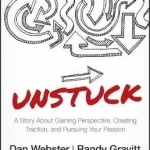
Unstuck: A Story About Gaining Perspective, Creating Traction, and Pursuing Your Passion
Jon Gordon, Dan Webster and Randy Gravitt
Book
Untwist the question mark from your life to start living authentically UNSTUCK offers a path forward...

Marijuana Handbook Lite
Lifestyle and Medical
App
Containing hours upon hours of content, resources, and information for medicinal marijuana users to...
Hazel (2934 KP) rated My Lovely Wife in Books
Apr 6, 2019
A gem of a read
This book is like nothing I have read before ... in a good way of course but I am slightly worried that I may be moving onto the dark side of normal! Why? you may ask - just read this book and you'll understand!
What we have here is an absolute gem of a read that had me hooked from the start. I won't go into the plot as I don't want to give anything away but will describe it as being edgy, dark, twisted, engrossing, disturbingly entertaining and totally unique. The characters are just excellent but more than that, they are frighteningly believable and rarely do I find myself feeling so wrong about liking and rooting for someone so disturbed but scarily normal!
The writing is crisp and effective and easy to read with excellent pacing; great suspense and twists leave you reading way too late into the night in anticipation of what the heck is going to happen next.
I can't believe this is a debut and I am waiting on tenterhooks for Samantha Downing's next book and I only hope it's as disturbingly good as this one. On her website, she says that she wants to "tell stories that make people walk into walls"; I think she did with this one.
Thank you to the publisher, Penguin UK - Michael Joseph, and NetGalley for my copy in exchange for an honest review.
What we have here is an absolute gem of a read that had me hooked from the start. I won't go into the plot as I don't want to give anything away but will describe it as being edgy, dark, twisted, engrossing, disturbingly entertaining and totally unique. The characters are just excellent but more than that, they are frighteningly believable and rarely do I find myself feeling so wrong about liking and rooting for someone so disturbed but scarily normal!
The writing is crisp and effective and easy to read with excellent pacing; great suspense and twists leave you reading way too late into the night in anticipation of what the heck is going to happen next.
I can't believe this is a debut and I am waiting on tenterhooks for Samantha Downing's next book and I only hope it's as disturbingly good as this one. On her website, she says that she wants to "tell stories that make people walk into walls"; I think she did with this one.
Thank you to the publisher, Penguin UK - Michael Joseph, and NetGalley for my copy in exchange for an honest review.


